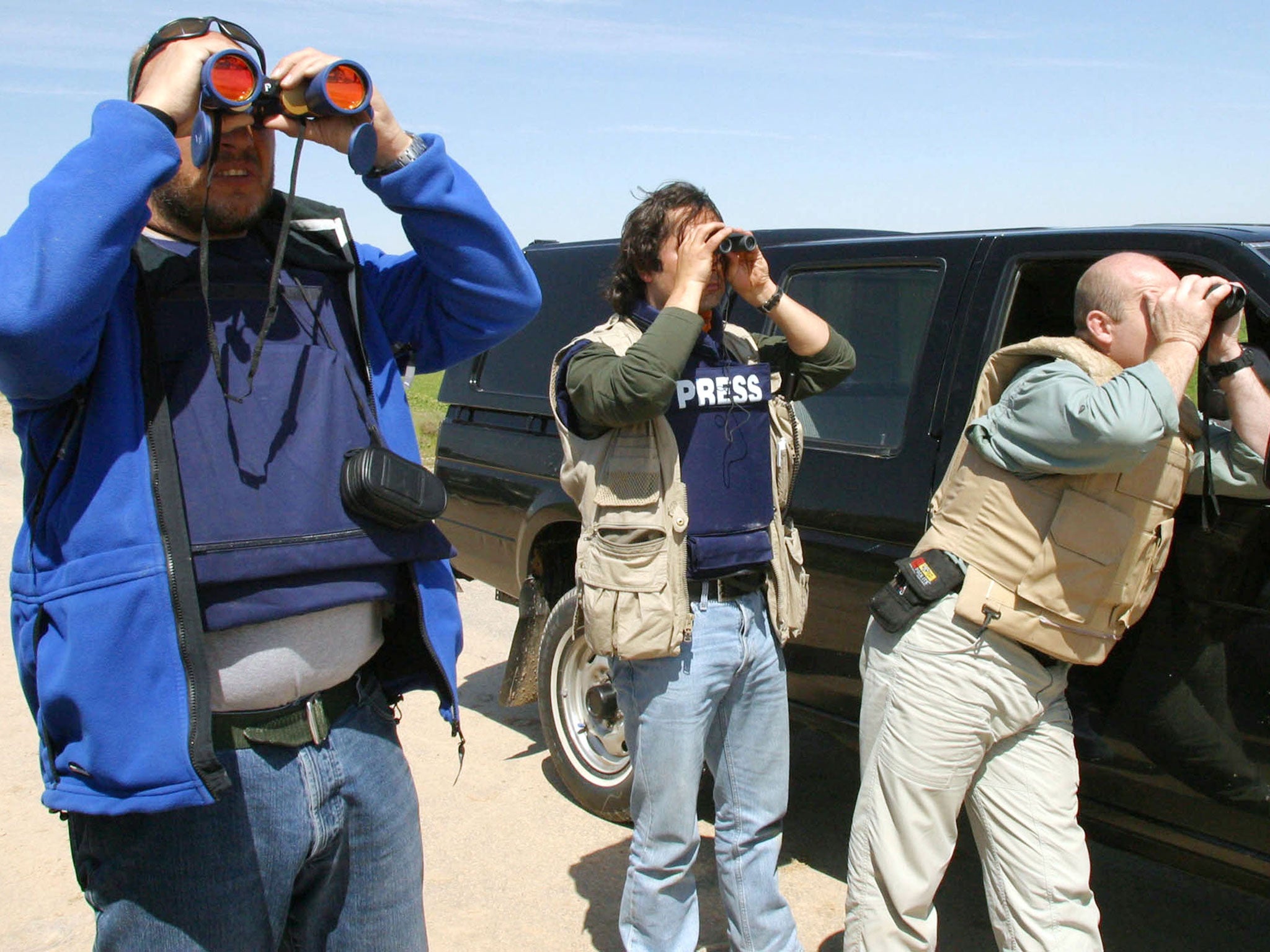If you want the truth during a war, don't ask a pundit
On TV, informed commentators are too often ignored in favour of 'experts' with their own political agendas


The ignorance of television pundits and the limitations of "embedded" journalism ease the way for governments to launch disastrous wars in Iraq, Afghanistan and, still in its early stages, Mali. Little is learned from past failure because the media gives such a misleading picture of what happened.
The easiest way for television to improve coverage is to employ better-informed experts with some real claim to expertise. CNN has good correspondents, but I stopped watching it a few years ago because of the wretched quality of so many of their commentators, whose qualifications are never questioned.
Even if the pundits had been to the countries they pontificate about, it might make no difference. In the early days of the US occupation of Iraq, I remember Paul Wolfowitz, the US deputy defence secretary, accompanied by a party of American opinion-formers, visiting Iraq. They went to Tikrit, where Wolfowitz described what was happening in Iraq as "a wonderful success story".
Back in Baghdad, Wolfowitz and the pundits were staying in the al-Rashid Hotel, which had been taken over by the US army. At 6.10am the following day, Iraqi insurgents fired a barrage at the hotel. A US colonel was killed and 15 others wounded. Soon after, Wolfowitz was telling us at a press conference: "There are a minority who refuse to accept the reality of a new and free Iraq. We will be unrelenting in our pursuit of them." Neither Wolfowitz nor the pundits seemed to have been brought any closer to the reality of Iraq by their experience.
Media companies are careful about which correspondents they send to cover wars and crises and careless about who they get to comment on the events. The situation is worse in the US than Britain, bookers seldom questioning the credentials of some self-declared expert who will often come from a think tank with a strong political bias.
Why do TV companies do this? One explanation is simple carelessness. Another is that professional commentators are experienced on television and will give a better performance. Most are unpaid, so the decision about who to use is not taken very seriously. "Comment is free and facts are expensive" is an old media nostrum.
In times of war, of course, experts under contract can make money. Their views help to shape public opinion, and governments try to control them. In 2003, US television channels employed retired senior military officers as their in-house experts on the war in Iraq. The Pentagon gave these ex-officers exclusive weekly briefings enabling them to appear to have the inside track on the conflict. Minor dissent on tactics was tolerated by the Pentagon, but broader criticism of the war was punished by exclusion from the briefings. This was ultimately revealed in The New York Times, but TV companies showed little embarrassment that their independent military experts had been in the Pentagon's pocket.
There invariably are people who genuinely know everything about a country or the background to a crisis. They usually work at a university rather than a Washington think tank, and their views may be contrary to governmental policy.
Much the best-informed commentary I have seen about the French intervention in Mali is a piece in the Financial Times by Hugh Roberts, professor of North African and Middle Eastern history at Tufts University. He writes: "The Sahel's terrorism problem dates back no further than 2003 – the West's global war on terror gave birth to it; the West's part in the destruction of Muammar Gaddafi's Libya aggravated it; and France's decision to pursue another war in Mali is expanding it." Roberts's succinct account of the roots of the crisis outdoes any analysis elsewhere.
The invasion of Iraq in 2003 was the template for state control or manipulation of the media. "Embedding" became an accepted part of war reporting, though media outlets gave up a greater part of their independence than they admitted.
The advantages were obvious. Access was greater. It could be dangerous, but going with an army is safer than travelling alone. Seldom mentioned but important for many media organisations is the fact that embedding is free. Television crews are housed, transported and fed at no cost to their employers by the American or British army.
From the start the disadvantages of "embedding" were obvious, giving the military the option of rejecting critics. Who would have guessed from British television coverage of the dispatch of the Army to Helmand in 2006 that the British embassy in Kabul had advised against the move as inviting disaster?
I had an early taste of the downside of "embedding" in 2004, when US forces stormed Fallujah. Almost the entire foreign press corps in Iraq went with them and reported a famous if bloody victory. In reality, Iraqi insurgents took advantage of the departure of US forces there to capture Mosul. Yet this defeat had scant coverage abroad because foreign reporters were all with the US army in Fallujah.
Embedding never meant total manipulation and would not have worked if it had. The best correspondents found ways of finding out what was happening and reporting it. Overall, however, embedding was effective censorship.
This censorship is now becoming more intense, particularly in the British Army. Official minders have become obligatory and restrictions on coverage are increasing. The reason is probably that the withdrawal of coalition forces is now close, after a campaign that has failed in most objectives. The Taliban's fighters are likely to take over positions the British vacate. A former British officer told me he had been ordered to assure journalists that the Afghan soldiers he had mentored are up to fighting the Taliban. "Of course that is completely untrue," he said.
Join our commenting forum
Join thought-provoking conversations, follow other Independent readers and see their replies
Comments
Bookmark popover
Removed from bookmarks